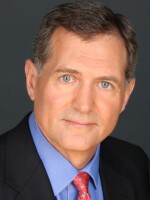DAVID GREENE, HOST:
Let's think for a moment about when a coronavirus vaccine becomes available. Which countries are going to be at the front of the line to receive it and which ones are going to be at the back? Global health organizations are working on plans for international cooperation. But there are also signs of competition, a battle between nations that's being described as a kind of vaccine nationalism. Let's talk about this with NPR national security correspondent Greg Myre. Hi, Greg.
GREG MYRE, BYLINE: Good morning, David.
GREENE: So are there certain countries we're talking about here that are already showing signs that they're competing?
MYRE: Yeah. Really, the main competition is between the U.S. and China. Both President Trump and China's President Xi Jinping have been hurt politically by their handling of the virus. And they would love to reverse that by handling the vaccine well at home.
Now, their approaches have been a little bit different. In the U.S., Trump's Operation Warp Speed is designed to get a COVID vaccine for Americans. It's in line with his America first ideology. And it could be a huge boost if it happens before the November election, although that's very, very optimistic. And you've also seen Trump become increasingly critical of China.
GREENE: Well, what is China's position in all this?
MYRE: So President Xi has taken a bit of a softer line, at least publicly. You could, perhaps, call it vaccine diplomacy. China's offering $2 billion to help developing countries deal with the pandemic. China also signed onto a World Health Organization resolution that calls the vaccine to be a global public good. And the U.S. has pointedly not joined in. But China is pushing very hard for a vaccine. It has several trials underway. And, you know, what if China gets a vaccine first? It could have very different priorities about how to distribute it to the rest of the world.
GREENE: I mean, Greg, I just think about this, country's rushing to get it first. But this is a global pandemic. Even if there are politics playing some role here in leaders' minds, isn't there a recognition that this all requires, like, a global solution.
MYRE: Yes, absolutely. Just consider this one example. Oxford University in Britain is working on a vaccine trial that looks pretty promising. They've partnered with AstraZeneca, which is a Swedish-British, multinational drug company. And the U.S. government has announced that it's providing more than a billion dollars to AstraZeneca to make vaccines. So there's going to be a lot of international players. But it does take time to ramp up production. And I spoke about this with Nancy Kass, a professor of bioethics and public health at Johns Hopkins University.
NANCY KASS: The challenge is going to come in what will be, at least, the first year, in terms of capacity combined with disagreements about who should be first, second and third in line.
GREENE: When it comes to who should be first, second and third, Greg, I mean, is the wealth gap in the world going to play a role? I mean, are we going to expect wealthy countries to be able to be at the front and developing countries, you know, some of which have seen rising cases, really struggle?
MYRE: Well, that's probably going to happen, it always does. But global health organizations say this is a recurring challenge in dealing with Western pharmaceutical companies, which have tremendous leverage in the developing world. And I spoke about this with Kate Elder of Doctors Without Borders.
KATE ELDER: We can design things as a global community. But ultimately, since the power is in the pharmaceutical corporations' hands to make those decisions, it's up to them at what scale they produce these vaccines, at what price they set them at and who are the first customers, so to speak, that they'll cater to.
MYRE: So there will be is intense scrutiny on whoever gets a vaccine to share it widely, fairly and a reasonable price. We'll see if that happens.
GREENE: NPR's Greg Myre. Greg, thanks so much.
MYRE: My pleasure. Transcript provided by NPR, Copyright NPR.



